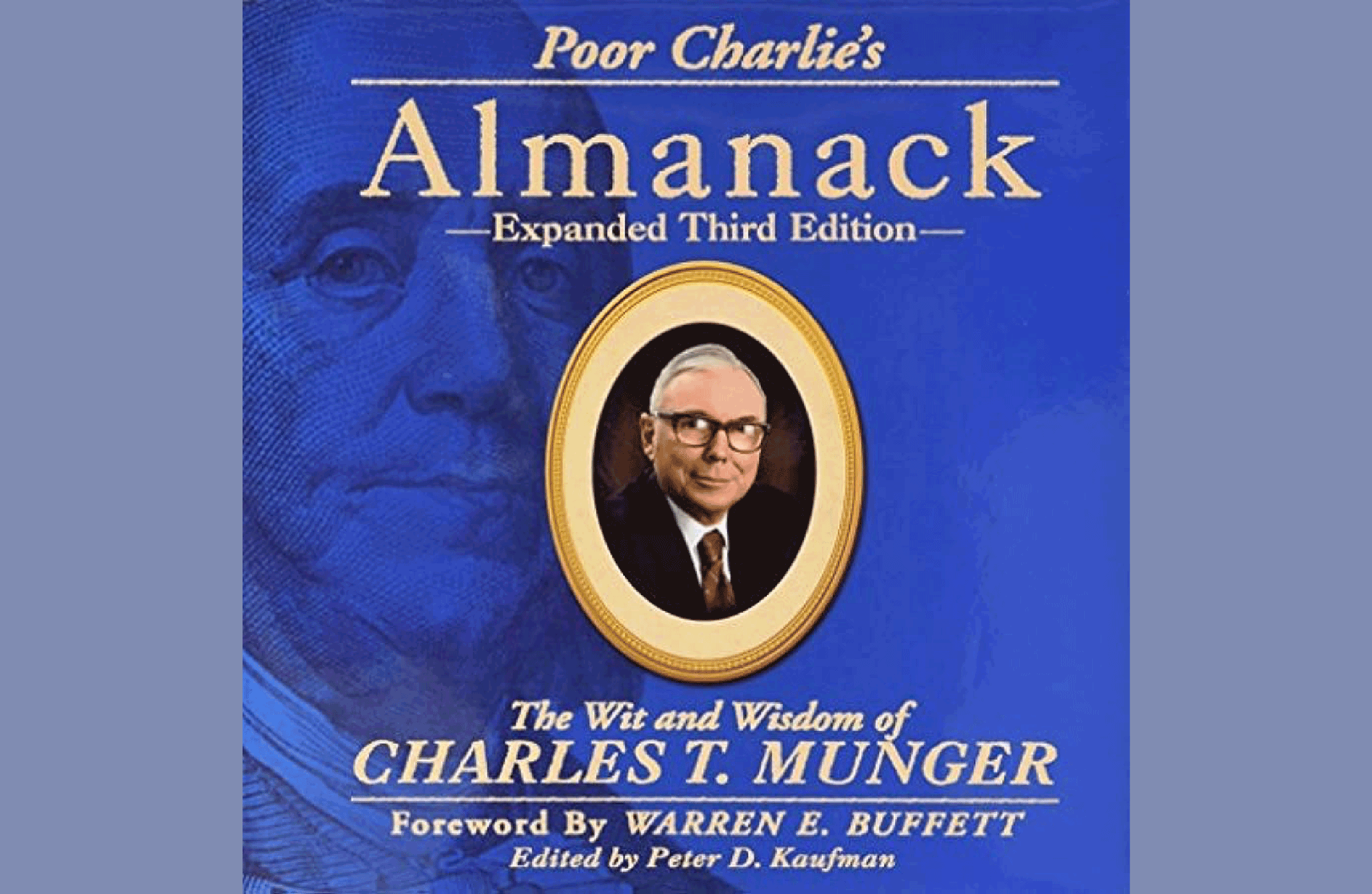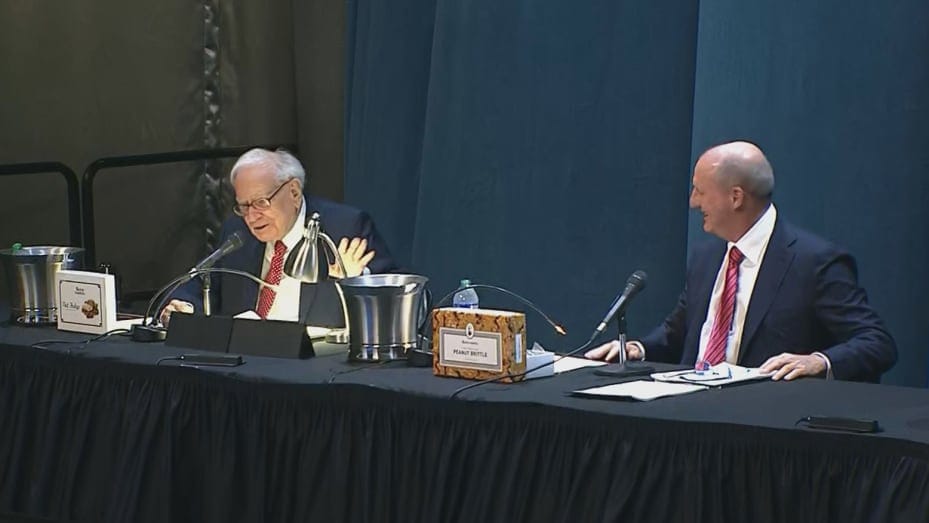Unpacking Warren Buffett's Timeless Investment Wisdom for Entrepreneurs
Explore the historical evolution of Warren Buffett's annual shareholder letters, which provide insights into his investment strategies, business philosophies, and economic views, shaping modern financial thought and corporate communication.

In the world of investment and entrepreneurship, few names resonate as profoundly as Warren Buffett. Known for his sage advice and successful long-term investment strategies, Buffett’s annual shareholder letters are a gold mine for anyone looking to deepen their understanding of the business world. Buffett pays homage to Charlie Munger in his latest dispatch, discusses the ideal shareholder persona, and reflects on the broader economic environment and its implications for businesses. Here's a closer look at these concepts, tailored to help entrepreneurs navigate and thrive in today's complex market landscape.

Charlie Munger: The Architectural Genius Behind Berkshire
Often seen as Buffett's philosophical counterpart, Charlie Munger played a pivotal role in shaping Berkshire Hathaway's investment strategy. Munger championed focusing less on acquiring average businesses at bargain prices and more on purchasing exceptional companies at reasonable prices. This shift from Benjamin Graham’s cost-based approach to a value-oriented strategy marked a transformative moment for Berkshire.
For entrepreneurs, Munger’s philosophy underscores the importance of aiming for quality and excellence in your ventures, whether choosing investments or building your own business. It’s not just about finding the cheapest opportunity; it’s about recognizing what offers the best value in the long run.
Quote from the letter:
"Charlie, in 1965, promptly advised me: ‘Warren, forget about ever buying another company like Berkshire. But now that you control Berkshire, add to it wonderful businesses purchased at fair prices and give up buying fair businesses at wonderful prices.’”
Bertie: A Model for Ideal Shareholder Engagement
Warren Buffett often uses personal anecdotes to illustrate broader business principles. His latest letter introduces us to his sister Bertie, who embodies the ideal shareholder. Bertie represents an investor who is patient, informed, and trusts the company's management to act in her best interest. Her approach to investing—focused on long-term growth and fundamental value rather than short-term gains—mirrors the strategic patience required to build a sustainable business.
As an entrepreneur, cultivating a similar mindset can be beneficial. Understand that proper growth and success do not happen overnight. It requires a steadfast vision and unwavering trust in the processes you have put in place, mirroring the patience and trust Bertie shows in Berkshire.
Quote from the letter:
"Bertie, like most of you, understands many accounting terms, but she is not ready for a CPA exam. She follows business news – reading four newspapers daily – but doesn’t consider herself an economic expert."
Navigating Market Volatility with a Steady Hand
Buffett’s reflections on the unpredictability of markets and the emotional nature of investors highlight the challenges and opportunities within market volatility. He observes that market participants continue to act on emotion despite technological advancements, often resulting in erratic market behavior.
This insight is crucial for entrepreneurs. Recognizing that markets may behave irrationally in the short term can help you focus on your long-term goals. It’s vital to build a business that can withstand market fluctuations and capitalize on the opportunities it creates rather than reacting hastily to each movement.
Quote from the letter:
"It is more than silly, however, to make judgments about Berkshire’s investment value based on ‘earnings’ that incorporate the capricious day-by-day and, yes, even year-by-year movements of the stock market."
Facing Regulatory and Economic Challenges in Utilities and Infrastructure
Buffett discusses the specific challenges faced by Berkshire’s utilities segment, including stringent regulatory environments and significant capital requirements. He emphasizes the importance of navigating these challenges with a clear understanding of long-term economic and regulatory trends.
This aspect of Buffett’s letter reminds entrepreneurs that external factors such as government regulations and economic shifts can heavily impact business operations. Staying informed and adaptable is critical to managing these challenges effectively.
Quote from the letter:
"At Berkshire, we particularly favor the rare enterprise that can deploy additional capital at high returns in the future."

Corporate Governance and Ethical Management
Praising Berkshire’s governance, Buffett highlights the company’s ethical management practices and its focus on manager autonomy. This approach fosters trust within the company, encourages accountability, and promotes long-term thinking.
Entrepreneurs can learn from this book by emphasizing strong governance and ethical business practices. Building a culture that values transparency and responsibility can enhance internal operations and the company’s reputation externally.
Quote from the letter:
"Charlie never sought to take credit for his role as creator but instead let me take the bows and receive the accolades."

Conclusion: Building Resilience and Embracing Long-term Value
Buffett’s latest shareholder letter, through its homage to Charlie Munger and its practical insights into economic and corporate governance, offers invaluable lessons for entrepreneurs. By focusing on quality, embracing patience, navigating market and regulatory environments wisely, and upholding ethical, solid businesses poised for long-term success.
Remember, in Buffett’s words, it’s not just about the investments you choose; it’s also about how you choose to run your business and engage with your stakeholders. Aim for excellence, think long-term, and stay true to your values. This is the path to sustainable success in the entrepreneurial world. Standards, entrepreneurs can build resilient businesses poised for long-term success.
Remember, in Buffett’s words, it’s not just about the investments you choose; it’s also about how you choose to run your business and engage with your stakeholders. Aim for excellence, think long-term, and stay true to your values. This is the path to sustainable success in the entrepreneurial world.
Warren Buffett's annual shareholder letters, penned with wit, wisdom, and financial acumen, have become essential reading for Berkshire Hathaway shareholders, investors, and businesspeople globally. These letters provide insights into Buffett's investment strategies, business philosophies, and views on the economy, making them a cornerstone of modern financial thought.

Origins and Evolution of Berkshire Hathaway
Warren Buffett took control of Berkshire Hathaway in the mid-1960s, transforming what was originally a textile manufacturing firm into a diversified holding company. The annual shareholder letters began as a formal means of communicating the company's annual financial results to its shareholders. Over time, these letters morphed into detailed discussions of Buffett’s business and investment philosophy.
1970s: Establishing Transparency
Buffett's letters in the 1970s laid the groundwork for what would become a masterclass in corporate communication. He began to use the letters to explain his views on investment decisions, the economic rationale behind acquisitions, and the financial principles that guided Berkshire’s growth. This decade solidified Buffett's reputation for a down-to-earth, transparent approach that was somewhat rare in corporate America during that period.
1980s: Expanding the Berkshire Empire
Throughout the 1980s, Buffett's letters reflected the rapid growth of Berkshire's portfolio, including the acquisition of significant assets like GEICO and The Buffalo News. Buffett used the letters to explain the fundamentals of investing in undervalued companies and the importance of managerial integrity and capability. This decade also saw Buffett cautioning about the dangers of debt and the speculative excesses of the market, themes that would recur in his writings.
1990s: Emphasizing Corporate Governance
In the 1990s, Buffett’s letters delved deeper into corporate governance and ethical leadership. He discussed board members' and executives' roles and responsibilities and criticized standard practices such as stock options and accounting manipulations. His 1990 letter famously outlined his “Owner’s Manual” for Berkshire shareholders, clarifying his business ownership and investor relations principles.
2000s: Navigating Market Turbulence
The letters from the 2000s are notable for their focus on navigating market fluctuations and economic downturns, including the dot-com bust and the 2008 financial crisis. Buffett’s commentary offered reassurance amidst the volatility, emphasizing the importance of investing with a long-term horizon and adhering to the fundamentals of value investing.
2010s to Present: Reflecting on Success and Challenges
In recent years, Buffett’s letters have reflected on the challenges of managing a massive portfolio of businesses and investments. He has discussed the difficulties of finding significant acquisitions at reasonable prices due to Berkshire's size. Additionally, Buffett has begun to prepare his shareholders for a future without him at the helm, discussing succession plans and the future leadership of Berkshire Hathaway.
Educational Component and Cultural Impact
Beyond their immediate business content, Buffett’s letters are renowned for their educational value. They serve as a resource for teaching investing principles, evaluating business performance, and economic understanding. They are often humorous, filled with analogies and anecdotes that make complex financial concepts accessible and engaging.
Warren Buffett’s shareholder letters stand as a testament to his unmatched skill in both investment and communication. They chart the course of Berkshire Hathaway and offer timeless insights into economic management and ethical leadership, continuing to influence generations of individuals in the business world.


